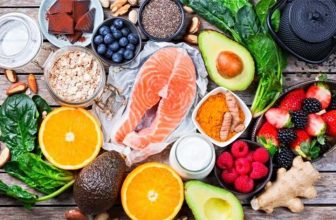
For a long time, dietary fat was deemed the enemy but in recent times it has become apparent that cutting down on fat has done very little for solving the obesity epidemic. This has led to people looking more closely at the role dietary fat plays in worsening our health and recently in 2010, a new study reversed the long-term belief that saturated fat in particular caused heart disease.
This has resulted in the tables turning and now carbohydrates appear to be demonized with many people blaming this core fuel specifically for weight-gain. The irony here is that some of those who point out that fat was wrongly blamed are the ones now exclusively holding carbohydrates responsible!
It first has to be recognised that there are many different types of carbohydrates (breads, rice, pastas, fruits and vegetables) and the physiological responses that these foods create is very different along with the energy density these foods possess.
The main connection that is made between carbohydrates and weight-gain is the stimulation of insulin and its action of inhibiting lipolysis (the breakdown of fat for energy). As much as this is true this will only happen in the postprandial period (after a meal) and presuming you are in energy balance (calories consumed matching calories burned) the inhibition of fat breakdown for fat burning and fat burning itself will balance out throughout the day. The process of fat breakdown and its metabolism is a very complex process and to point to just a single hormone as the main cause of weight-gain seems a little too simplistic.
Finally, a solution many low-carb advocates suggest is to swap the carbohydrate for protein but it should also be noted that certain proteins also stimulate insulin, especially those containing the amino acid Leucine.
Carbohydrates have many roles in the human body such as being used as an energy substrate by skeletal muscle when exercising. Carbohydrate is stored as muscle glycogen and it has been categorically shown that levels of glycogen are positively related to exercise performance – if you want to go fast you will need carbohydrates! Carbohydrates also play a role in immune function due to glucose being an important fuel source for immune system cells.
Furthermore, it has been shown that a diet with limited carbohydrates can negatively affect immune function and specifically increase the risk of upper respiratory tract infections. Carbohydrates as macronutrients are a broad category and manipulating the types of carbohydrates that are eaten may be the best way to go as opposed to just restricting all types.
So should we ditch the carbs and load up on the fat? Of course not! Both fats and carbohydrates should be present in one’s diet, as both can be beneficial/detrimental to someone’s dietary goals. Overall a diet that is high in carbohydrate will reduce fat oxidation (fat burning) but this doesn’t necessarily mean body fat will be gained (weight gain) and it has been shown that weight-loss can still happen on a high-carbohydrate diet. If the diet is predominantly made up of carbohydrate, fat or protein, a negative energy balance still has to be achieved in order to lose weight and overeating on any macronutrient (fat, carbohydrate or protein) will still result in weight-gain.









